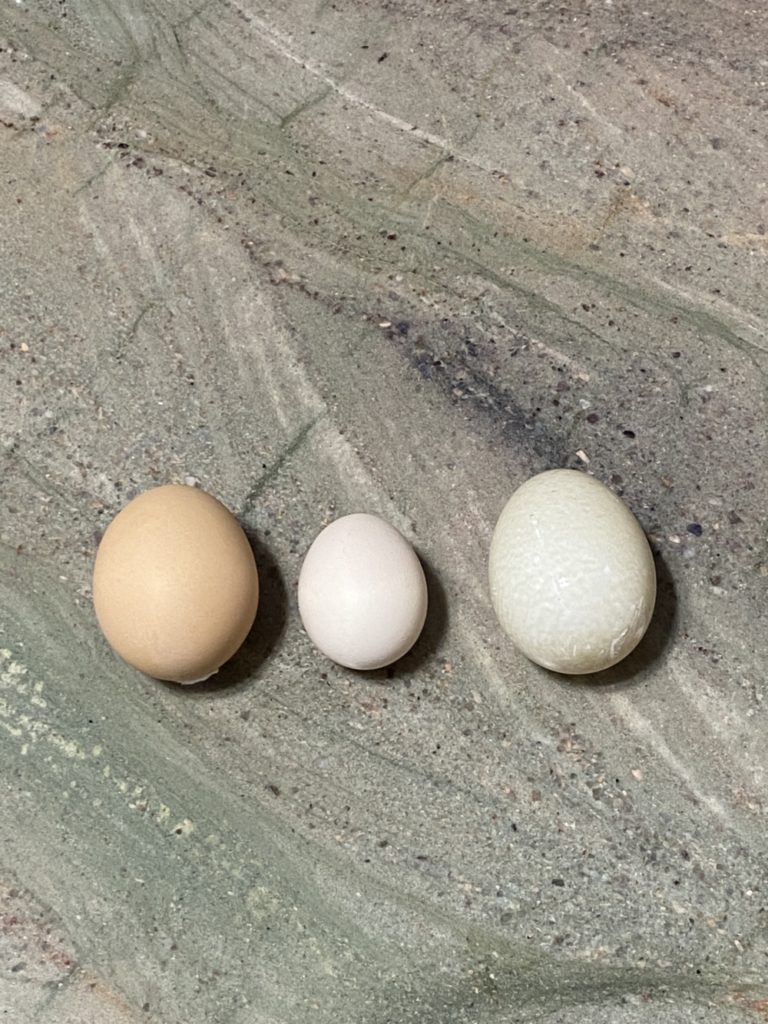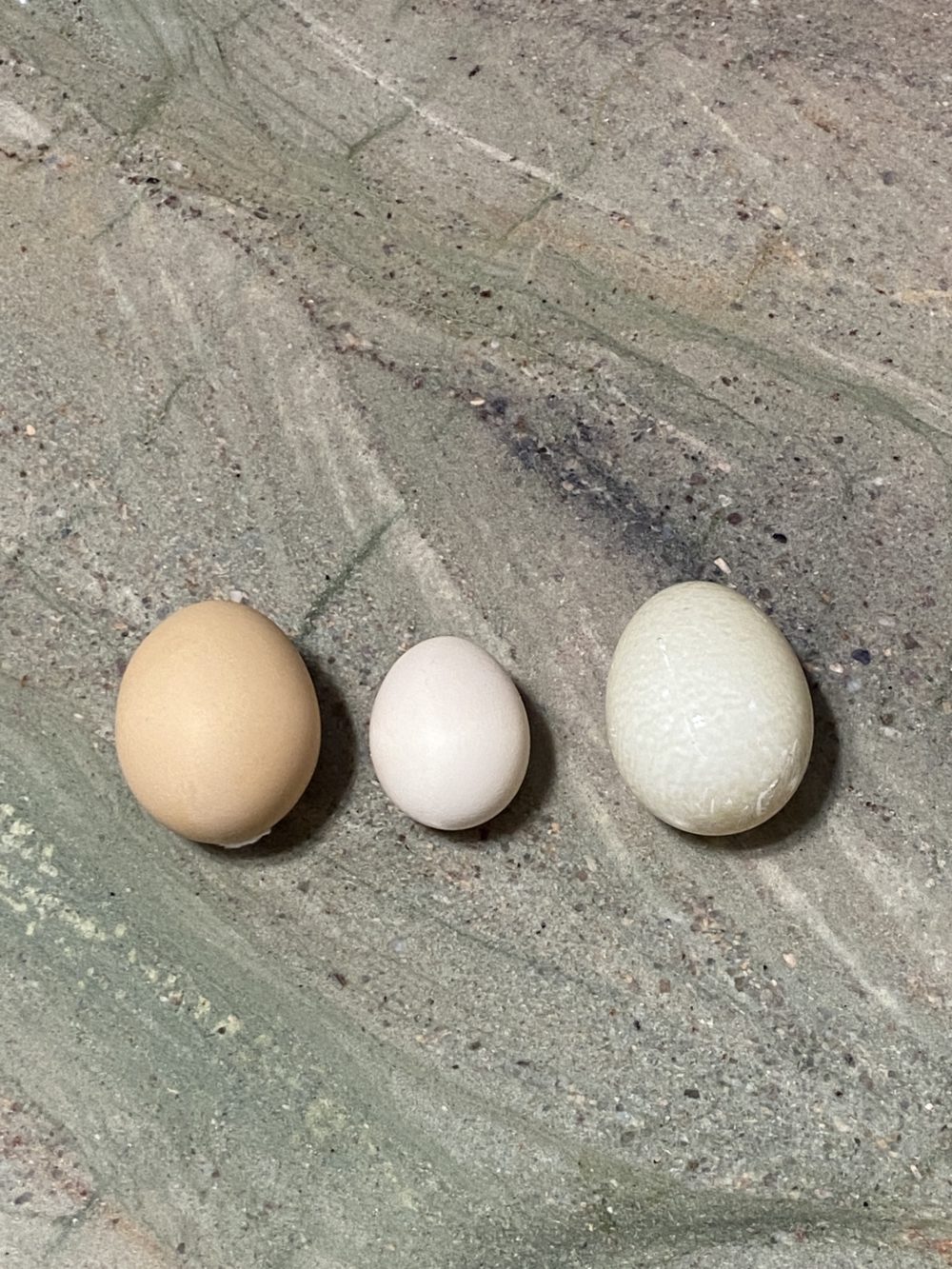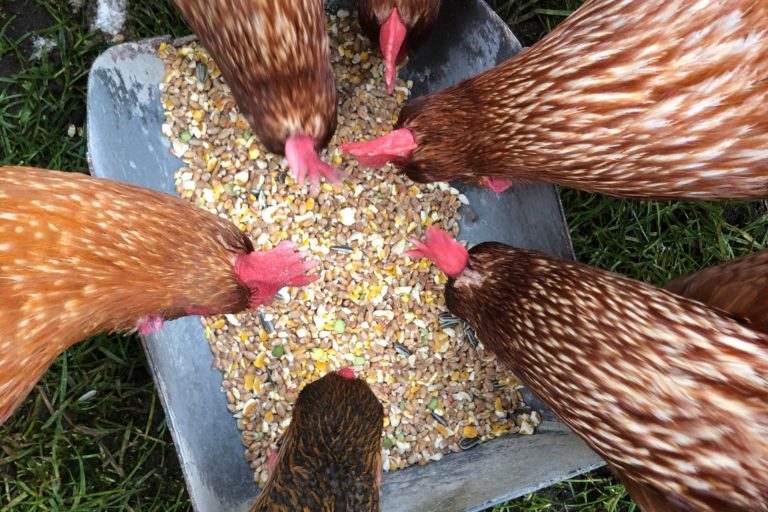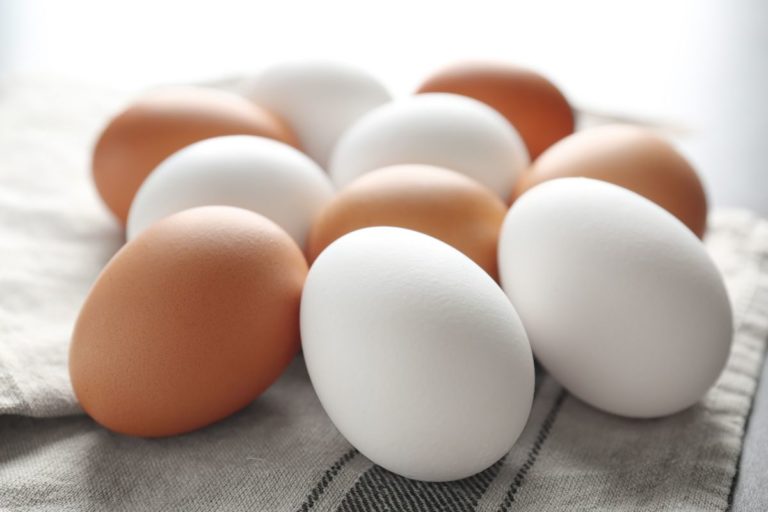Duck Eggs vs. Chicken Eggs: What’s the Difference?
If you’re debating between getting chickens or ducks for eggs, you may be wondering: What’s the difference between duck eggs and chicken eggs, anyway? If this is you, you’re in the right place as I had both!
While duck eggs and chicken eggs have many similarities, they actually have quite a few differences as well. Below, we’ll share more information about each of these types of eggs to help you choose between them. To learn more, read on!
What’s So Special About Eggs?
Eggs are a versatile, nutritious, and widely consumed food worldwide. They are typically eaten as they are an excellent source of protein, vitamins, and minerals, and are fairly inexpensive and easy to prepare.
Additionally, eggs are a good source of choline, which is important for brain health and development, and lutein and zeaxanthin, which may help to reduce the risk of age-related eye diseases. Because of their versatility, eggs of all kinds are a staple ingredient in many traditional dishes and cuisines worldwide.

An Overview of Chicken Eggs
Chicken eggs are produced by female chickens, also known as hens, and are typically laid once a day. The more chickens you have, the more eggs you can collect each day for sale or personal use.
Chicken eggs come in a variety of sizes and colors, with the most common being white or brown. The color of the eggshell is determined by the breed of chicken, as some breeds even lay pink, blue, or green eggs.
The yolk of the egg contains most of the egg’s fat and cholesterol, while the egg white, or albumen, is mostly water and protein.
Chicken eggs are a common food item and a staple ingredient in most cultures; and are consumed in a variety of ways such as scrambled, fried, poached, and boiled.
An Overview of Duck Eggs
Duck eggs are similar to chicken eggs but are instead laid by a female duck. They are larger than chicken eggs and have thicker, harder shells. They also have a higher fat and cholesterol content than chicken eggs which impacts their use in certain recipes.
Most people use duck eggs the same way as chicken eggs in cooking and baking, but their richer flavor and texture make them a favorite in some cuisines.

Similarities Between Chicken and Duck Eggs
Naturally, chicken and duck eggs both have lots of similarities. Both eggs are used similarly in various baking and cooking recipes around the world, and can be cooked alone in styles including fried, scrambled, poached, deviled, and boiled, or with other ingredients in cakes, cookies, meatloafs, and a lot more.
Unless you’re told, most people cannot tell the difference when it comes to taste.
Both duck eggs and chicken eggs are high in protein, vitamins, and minerals in both their yolk and white. They also have similar nutritional profiles with the duck eggs being only slightly higher in fat or calories than the other.
This means they also have similar storage guidelines, and can typically last up to 5 weeks when refrigerated or 2 weeks when stored at room temperature.
Differences Between Chicken and Duck Eggs
Since chickens and ducks are different species, their eggs do still have some slight differences.
1. Egg Shells
For one, the shell of duck eggs is slightly thicker and harder than the shell of chicken eggs, which can make them more challenging to break. Duck eggs also run on the larger side, so a recipe that asks for three chicken eggs may be fine with two duck eggs.
2. Popularity
Duck eggs are also popular in lots of Asian cuisines and are used in a variety of dishes such as mooncakes, traditional Chinese pastries, and some savory dishes. In some European countries, especially France, duck eggs are even considered a delicacy.
3. Taste
Chefs who work regularly with duck eggs describe duck eggs as more flavorful than chicken eggs, with a richer yolk and a more robust taste. Those with less refined palates sometimes state that duck eggs taste “more eggy” than chicken eggs.
4. Size
You may even be able to tell the difference between a chicken and a duck egg based on their size. Duck eggs tend to be more narrow and pointed, while chicken eggs are more wide and rounded.
The white and yolk of duck eggs are also slightly thicker than chicken eggs, which makes them a favorite amongst pastry chefs looking for specific textures in their baking.
5. Allergic Reactions
An important point to consider is that although they have similar profiles, some of the proteins in the eggs are different. So, even if you’re allergic to chicken eggs you might not be allergic to duck eggs, and vice versa.
6. Cost of Eggs
Both types of eggs can be used to raise baby chicks or ducklings, depending on which egg type you incubate.
One point in favor of duck eggs instead of chickens is this. Although both are available in stores, duck eggs are more expensive. So if you plan on including a lot of them in your diet, it’s better to raise your own backyard ducks.
Overall, both chicken and duck eggs are nutritious and versatile ingredients that can be used in a variety of dishes. The choice between them may depend on personal preference or availability.
What Chicken and Duck Eggs Are Used For
Both chicken and duck eggs are commonly used in cooking and baking. They are a staple ingredient in many recipes, including scrambled eggs, omelets, frittatas, quiches, and custards. They can also be hard-boiled, fried, or poached.
Chicken eggs are also a common ingredient in many baked goods such as cakes, cookies, breads, and pastries. The whites and yolks can be separated and used differently to provide specific properties to the baked goods. For example, egg whites can be used to provide a light and airy texture in some pastries while yolks are used to provide richness and a yellow tint to the baked good.
Duck eggs, due to their larger size and firmer yolks, are often used in Chinese and Southeast Asian cuisine. They are also sometimes used in French and Italian cooking. As mentioned, previously, they are perfect for making traditional Chinese mooncakes, and particularly well-suited for making pâté and confit.
Both chicken and duck eggs can also be used for non-culinary purposes. Chicken eggs, for example, are sometimes used to make hair masks and are used in the production of some vaccines. Similarly, duck eggs are sometimes used in skin care products and soap due to their texture and nutritional profile.
Overall, both chicken and duck eggs are versatile ingredients that can be used in many different ways, and their usage greatly varies depending on the specific recipe you’re creating.
Consider what you want to create with eggs to help you choose which egg type is best for your recipe or project. Depending on how often you make these, this will help you choose whether you should get backyard chickens or ducks. Or, perhaps you’ll just get both!







